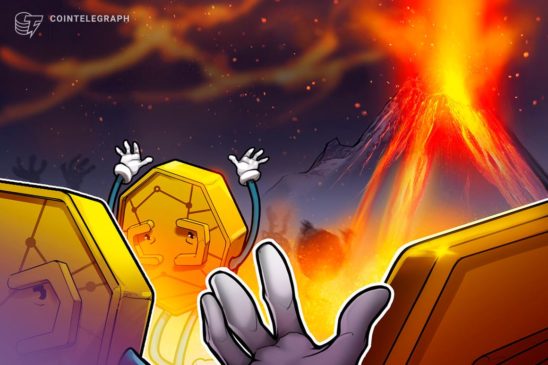The blockchain industry has been revolutionary, to say the least. In the last three years, the crypto market has affected and changed lives positively — mine included. And this is why I am a massive advocate of cryptocurrencies and their power to give anyone financial freedom. Perhaps that is why MicroStrategy CEO Michael Saylor’s quote calling Bitcoin (BTC) “digital gold” resonates with me.
As an industry still in its nascent stages, I have had my fair share of unfortunate events happen to me, but none as bad as what I’ve experienced with Bitget. Allow me to share the details of the ordeal in which Bitget seized more than $200,000 of my money, directly caused more than $2.5 million in losses, and — by my estimate — more than $10 million in reputational damage.
I have lost:
$16M+ due to Bitget
$4M+ staked on UST / Luna
$2M held in FTX
$1M+ held in FreewayAnd much more in other scams.
Here are my 7 learnings that can save you millions of dollars:
[ Instant Bookmark ]
— EvanLuthra.eth (@EvanLuthra) August 15, 2023
One might think an exchange as large as Bitget would be all about transparency. However, I’ve realized that is unfortunately not the case. Crypto exchanges have seen their downfall because of a lack of transparency. FTX is a rather painful example, and it is still fresh in our memories.
According to reports, FTX CEO Sam Bankman-Fried moved up to $10 billion in FTX customer funds (without the knowledge or approval of said customers) to his trading company Alameda Research, whose assets were held primarily in the exchange’s native token, FTX Token (FTT). Binance CEO Changpeng Zhao’s announcement that Binance was selling its stake in FTT created panic among customers, which resulted in a bank run and, ultimately, the bankruptcy of the FTX Group.
My experience with Bitget
I’ve been a user of Bitget for a while now. But in the first quarter of this year, Bitget prevented me from withdrawing my tokens — despite being in full compliance with Know Your Customer protocols.
The issue arose in connection with my role in advising a project, ReelStar, beginning in October 2022.
ReelStar’s announcement about my advisory role was very public. It’s safe to say it was public knowledge. In the same fashion, it was public knowledge that I was going to be paid with the project’s tokens. Unlike what most people — including Bitget executives — might think, I don’t get paid in dollars to promote projects I’m unfamiliar with, unlike celebrities including the Kim Kardashians or Floyd Mayweathers of the world.
Related: It’s time for the SEC to settle with Coinbase and Ripple
As such, I only make money when a project’s token grows in value. This is pretty standard, as I am an adviser — not an influencer. I get paid in tokens because I bring more than just influence to the table. I connect projects with partners, bring capital, and ultimately, boost credibility.
On March 23, it was time for ReelStar’s native token, Reel Token (REELT), to be listed on exchanges. Bitget charged money for this right — six figures, in dollars, just so you have some idea of what happens behind the scenes.
I had been an adviser on the project for months at that point and was promised compensation in the form of REELT. Having not earned anything for the work I had put in, I sold less than 3% of my personal REELT holdings — less than .03% of the total REELT supply — with the blessings of ReelStar’s founders, Navdeep Sharma and Nick Bahl.
But my funds — including the Bitcoin and altcoins I already had on the exchange before REELT — were blocked without explanation. I and my attorney, Charles Slamowitz, are now filing suit through my to determine whether Bitget stole my funds, as Bitget is refusing to inform me.
Related: An ETF will bring a revolution for Bitcoin and other cryptocurrencies
At this time, I have no idea where my funds are. As far as I know, Bitget may be using them to make its own investments — and may be planning to keep my money permanently.
At first, I thought there was an error and that I could clarify things with Bitget — but I soon realized that it had not made a mistake.
Is Bitget the next FTX?
I lost more than $2 million to the FTX debacle and was invited by Fox, CNBC and many others to talk about what I thought went wrong. Now, Bitget is acting in a manner that is arguably reminiscent of FTX before its fall. It would be wise for users to consider what that means. I’ve been burned already, and I think I’m in a position to point out the questions surrounding this exchange.
I also find it odd that a company like Bitget would hire a former host for a state-owned Chinese television network — Gracy Chen, who worked for Phoenix Television — as a key public face for its business. Outside of Chen, we know little about the exchange’s executives. Who are Bitget’s actual owners? Who is on its management team? Who’s controlling the user funds in Bitget’s custody? Few are asking these questions, and the exchange is refusing to provide many answers.
And in a continuation of its strange hiring practices, it has brought on non-expert celebrities, including actor Adam DeVine and Lionel Messi, to market its services. This is a dangerous precedent originally set by FTX, and it is worrying. Using celebrities to market cryptocurrency products to unsuspecting members of the public — especially millennials and Gen Z — arguably isn’t ideal for the market. FTX fell, in part, because it relied on influencers and marketing to win over casual users while failing to prioritize hard work on the back end.
In another parallel with FTX and its reliance on its own FTT token, a substantial portion of Bitget’s reserves are held in its native token, Bitget Token (BGB), rendering the exchange vulnerable if the price of its token falls.
Bitget sabotaging token listings?
Recently, GPT Guru accused Bitget of sabotaging its GPTG token listing on the exchange. According to GPT Guru, GPTG’s listing price was set at $0.0035, but Bitget actually listed it at $0.084 — 24x higher. This led to a huge red candle, which ruined the launch.
“Upon inquiring more about how it happened, we figured out that it was Bitget’s own team who was responsible for [the] messed up $GPTG listing,” Guru said. “Not only that, the Bitget team itself admitted to GPT Guru’s CEO about an insider job from within the Bitget team.”

Bitget initially agreed to compensate users who had lost funds, according to GPT Guru, but has since deleted its messages and ceased communication with the GPT Guru team. This led GPT Guru to threaten legal action against Bitget — but not everyone can afford expensive lawyers.
These actions are unfair and reflect poorly on Bitget as a crypto exchange, which enjoys control over its users’ funds. What’s to stop it from engaging in the same questionable — arguably unethical — behavior in the future? These issues should concern us all. At a time of market uncertainty and looming regulatory action across the globe, we deserve more transparency from the exchanges we use — and clear guarantees of the behavior we can expect.
The central question for crypto exchanges is what legal duties they specifically owe to their users — if any. My lawsuit is going to find out.
This column is a counterpoint to Bitget’s perspective: Bitget acted ethically on crypto influencer’s account
Evan Luthra is a 28-year-old cryptocurrency entrepreneur who sold his first company, StudySocial, for $1.7 million at 17 and had developed over 30 mobile apps before he was 18. He became involved with cryptocurrency in 2014 and is currently building CasaNFT. He has invested in more than 400 crypto projects.
This article is for general information purposes and is not intended to be and should not be taken as legal or investment advice. The views, thoughts and opinions expressed here are the author’s alone and do not necessarily reflect or represent the views and opinions of Cointelegraph.



